Last updated: December 20, 2022
The high price of gas has everyone in a panic. I even heard some jokes about getting a horse to ride around to save money. But horse owners know that no matter how high gas is, it’s still cheaper to fill up a car than own a horse. So, what makes horse riding expensive?
Horse riding is so expensive because:
- Horses eat a lot
- Veterinary bills are costly.
- Horses need regular hoof care
- Horses require dental care
- Horse riding equipment is expensive
- Horses require numerous brushes and other grooming tools.
- Horse Boarding
- And more
Horse riding is a lot of fun but can also be very expensive. There are a number of reasons why horse ownership is so costly, and these often deter people from taking up the sport. One of the biggest expenses is the cost of buying a horse in the first place.
Prices can vary widely, depending on the horse’s breed, age, and training. Even used horses can be expensive, and many people opt to lease or borrow horses instead. Other costs associated with horse riding include boarding fees, tack, lessons, and competition entry fees.
Add all of these up, and it’s no wonder that horse riding can be an expensive hobby. However, there are ways to save money on horse riding costs. By doing your research and shopping around, you can find ways to enjoy horse riding without breaking the bank.
Boarding a horse can be expensive.
Most people can’t keep a horse in their backyard or own a farm. Thus, they have to pay to have their horses boarded in a barn, stable, or large fields.
There are many options, from places where the horse lives “out” the entire time (don’t go into a stable at night) to establishments where horses have stalls that are probably nicer than your bedroom. But even the most basic boarding requires money due to the sheer amount of land involved.
There is also the cost of staffing the establishment with grooms who muck out stables, clean the horses’ hooves daily, feed them, and brush them.

How To Save Boarding Costs
- Consider stabling “out” or pasture boarding.
- Consider self-care or partial-care boarding (you show up to muck out, feed, and groom)
- Shy away from fancy places with lots of extra amenities like solariums
- See if you can partially lease your horse to another rider
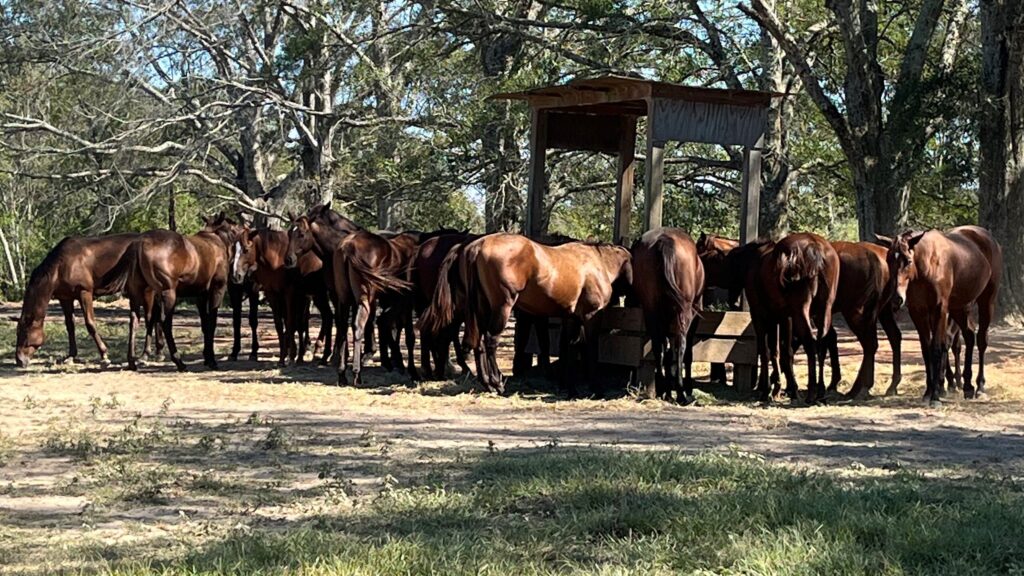
Horse riding is expensive because these animals are pigs
Horses eat an enormous amount of food. Also, their stomachs are small, so they must eat day and night. Thus, if they are not living outside all day, food such as hay, alfalfa, and pellets must be bought to keep the horse healthy. Failure to give them constant access to food can lead to horrible health problems, including ulcers.
In addition, the cost of a hay bale rises with the cost of gas and fertilizer. Inflation is hitting every industry hard. Currently, we pay over $15.00 for a bale of hay, and our horse eats a bale in just over three days.
How To Save Feeding Costs
- Look for boarding with good grazing; even if it costs slightly more, you’ll save loads on food.
- Buy in bulk by teaming up with other horse owners.
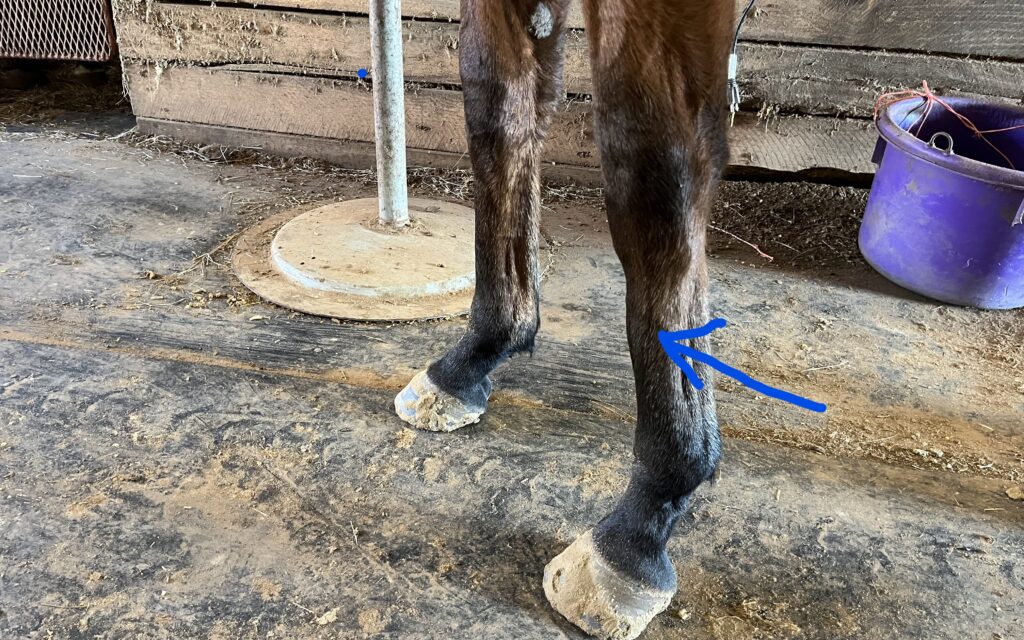
Veterinary bills for horses are legendary.
Horses are talented at injuring themselves. Also, they are gifted in getting colic, worms, tick fever, and all sorts of ailments that nobody knew existed until they owned a horse.
Nor can a horse owner wrestle the animal into a carrier and drive to the vet. The vet either needs to come out to where the horse is stabled (call out and transport fees on top of the bill), or they need to be trucked in a horse carrier (buy, rent, or beg).
Here is a good example, when I went to the barn today, I noticed one of our young horses has a knot on its cannon bone. It doesn’t seem like a bucked shin, so I called the vet to x-ray its leg so I can figure out if it needs some time away from training. More money to pay.
How To Save Vet Costs
- Get vet insurance for your horse.
- Negotiate a payment plan rather than trying to pay it all at once
- Learn to deal with more minor issues yourself
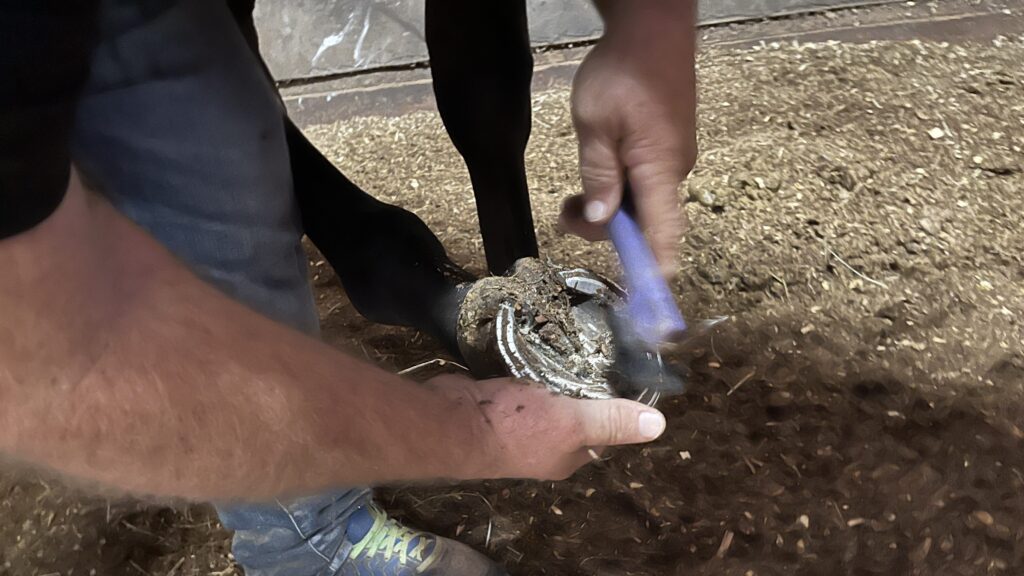
Horses need constant pedicures from farriers.
Horse hooves require a farrier to clip and shape their hooves every 4-6 weeks. If a horse is in shoes, these will also be replaced each visit. In addition, if a horse “throws a shoe,” the farrier has to be called for an extra visit.
How To Save Farrier Costs
- See if your horse can go barefoot. You’ll still need a farrier, but you won’t have to buy shoes.
- Get your horse on the same farrier schedule as others to split the transport fee.
- Learn to trim your horse’s feet.
- Never be late; always cancel with plenty of advance notice.
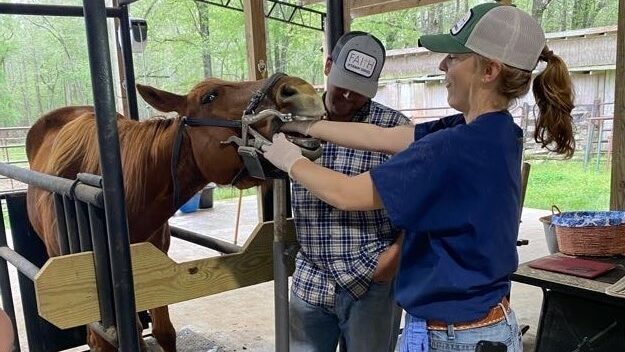
Horses require dental work.
Horses need to see a dentist at least once a year. Unfortunately, trying to brush your horse’s teeth won’t get you out of the appointment. Horse teeth need to be “floated” (shaped) to ensure the horse can continue eating efficiently. Avoiding the dentist leads to lost weight, higher food bills, and vet visits.
How To Save Dentist Costs
- Try to schedule dentist appointments with others at the same boarding place.
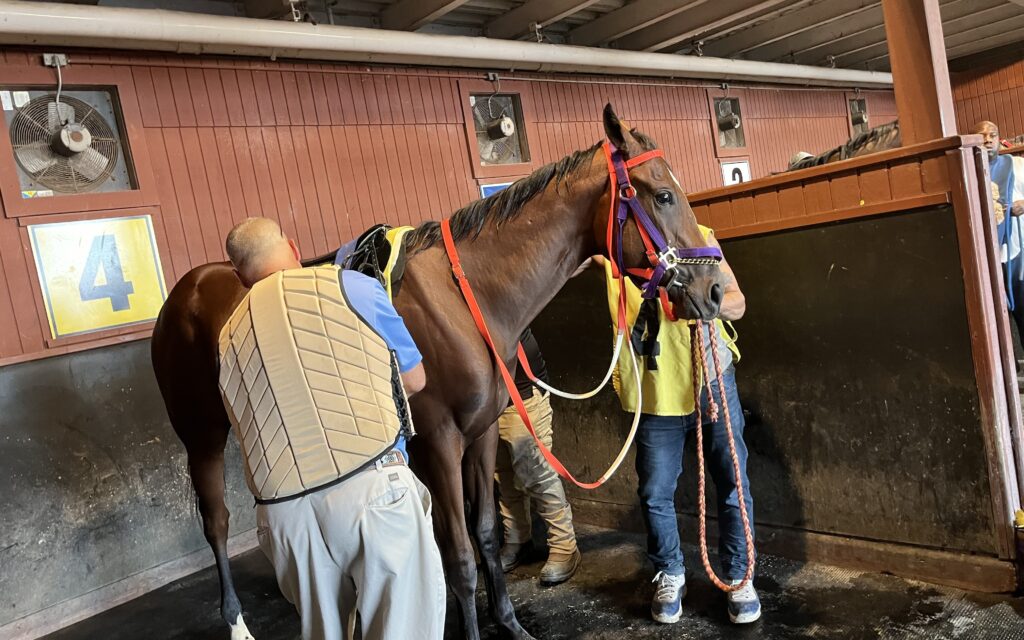
Horse riding tack often costs more than the horse.
Many horse riders have paid more for their saddle than the horse. In addition, saddles are often sold “unfitted,” meaning you still need to purchase:
- Girth
- Stirrups
- Stirrup leathers
Then there is the blanket or numnah that goes under the saddle, along with:
- Reigns
- Bridle
- Bit
- Halter
Also, many horses require the following:
- Wraps
- Overreach boots
- Travel boots
- Rugs
- Blankets
All of this, and we haven’t even got to the equipment a rider needs, at a minimum, boots and a safe helmet.
How To Save Equipment Costs
- Buy used/second-hand as much as possible
- Keep an eagle eye out for sales, such as Black Friday and end of season
- Look for reduced items due to minor cosmetic damage (i.e., logo rubbing off)
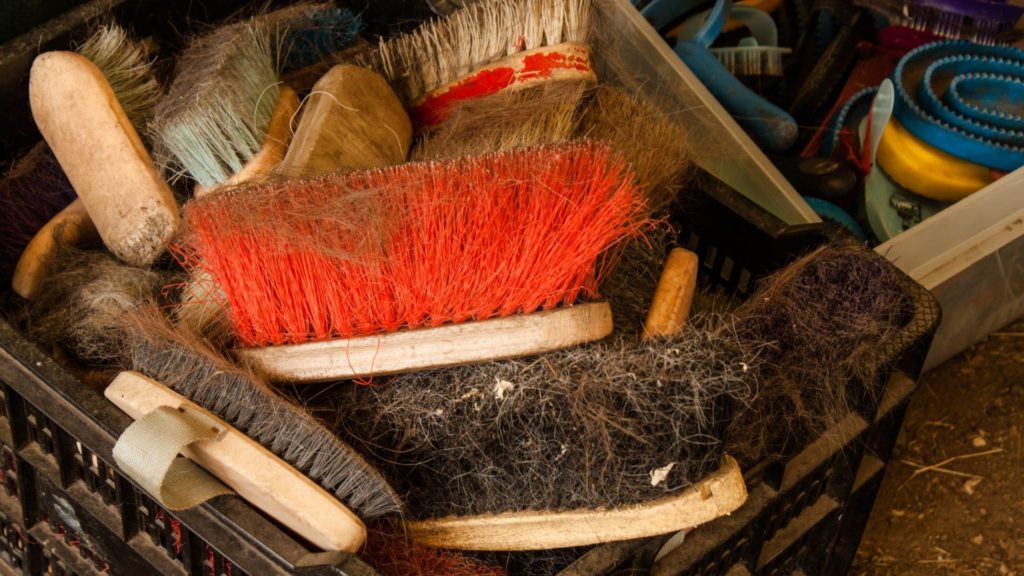
Horses require more brushes than social media beauty influencers.
Horses can easily end up with more beauty and care accessories and products than social media beauty influencers. There are many different brushes and combs, some specialized for:
- Tail
- Mane
- Face
- Body
In addition, horses can need the following:
- Hoof picks
- Hoof polish
- Hoof oil
- Shampoo
- Conditioner
- Shine spray
- Fly spray
- Tick spray
- Hair tonic
How To Save Brushes Costs
- Buy on sale
- Label them so nobody takes yours.
- Research so you are buying what your horse needs and not every gadget or serum on the market.
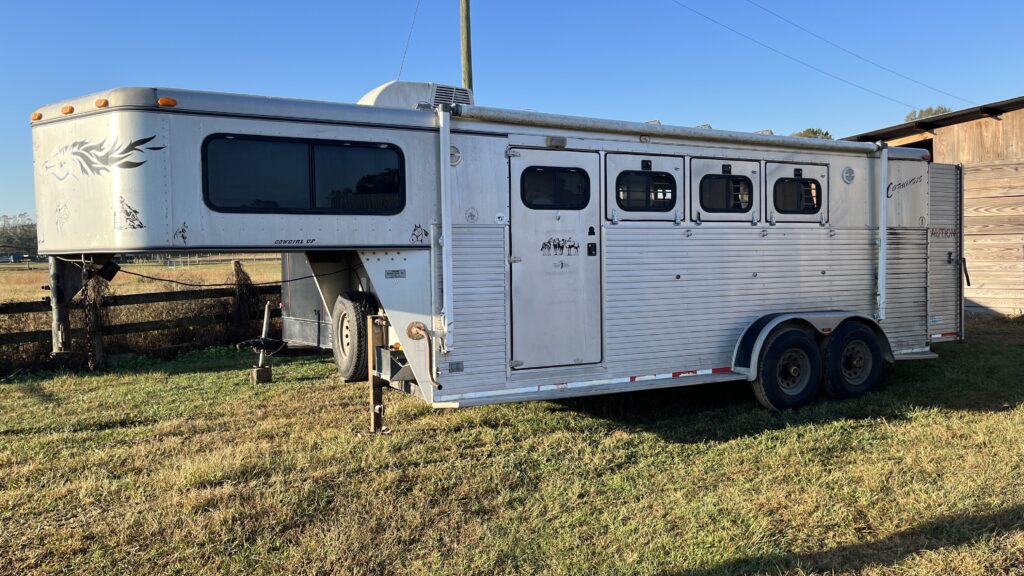
Transporting a horse is an expensive enterprise.
Horses don’t fit in the trunk of your car. They are large and require special trucks or trailers to get them to shows, vet visits, or trails. Most horse owners buy, but you can also rent a horse trailer (like a U-Haul for a horse), or hire a service.
If you want to find out how much it costs to fly a horse overseas, you should check my article. I also include the steps it takes to get a horse through customs.
How To Save Transport Costs
- See if somebody is going in the same direction that has room for another horse.
- Plan ahead
- If buying a trailer or truck, buy second hand
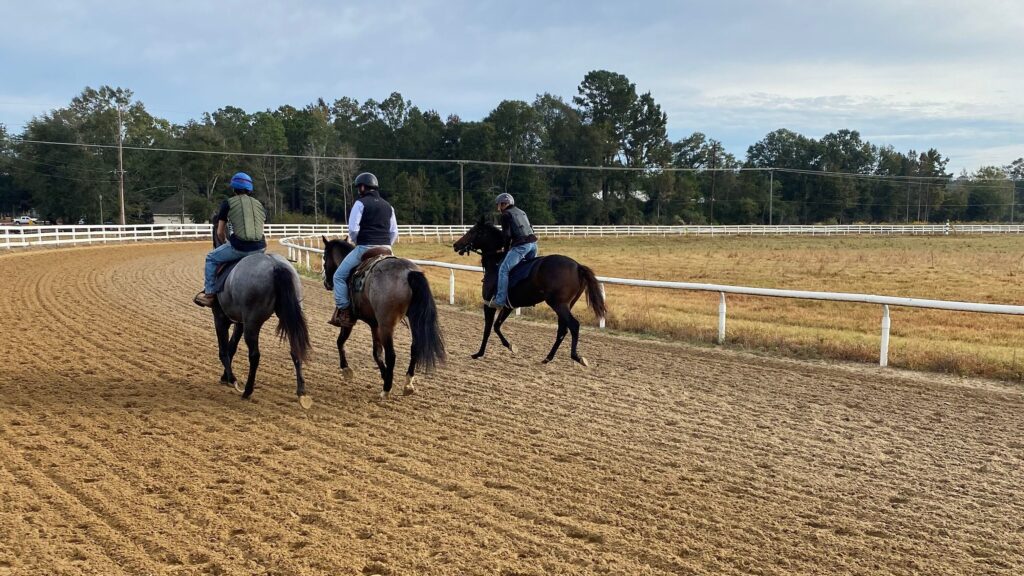
Horseback riding lessons are expensive
Horseback lessons are often expensive due to the cost of keeping a horse and the amount of land required to have a class. That’s on top of the person’s time to teach the lesson.
How To Save Lesson Costs
- Group lessons rather than individual
- See if you can work for lessons, such as mucking out stalls, filling hay nets, and grooming.
- Keep an eye out for scholarships or grants.
- Split the lesson slot with somebody else to ride every other time
Conclusion
Most of the cost of horse riding comes down to the care and upkeep of the animal. But expenses can be significantly reduced if you are willing to share costs, look out for great deals, and do some less glamorous tasks (mucking out).
References
- https://extension.psu.edu/animals-and-livestock/equine/facilities-and-technology
- https://be.chewy.com/tips-for-choosing-the-perfect-horse-boarding-facility/
- https://www.fei.org/stories/lifestyle/teach-me/5-things-your-farrier-wants-tell-you
- https://equimed.com/health-centers/dental-care/articles/4-top-reasons-for-making-horse-dental-care-a-priority

About the Author: Miles Henry
Lifelong Horseman | Racehorse Owner | Published Author
Miles Henry brings over 25 years of hands-on experience training and owning Thoroughbred racehorses. Raised with Quarter Horses and Appaloosas, he’s spent a lifetime learning from horses—on the track, in the barn, and in the field. Today, he runs a small but successful racing stable in Louisiana and shares real-world insights on HorseRacingSense.com, helping horse owners, fans, and bettors navigate the sport with confidence.
📚 Books: View Miles’s books on Amazon »
🎧 Podcast Guest: Animal Tales Ep. 32 |
YouTube Interview
📩 Newsletter: Sign up for racing tips and horse care advice »
🔗 Follow Miles:
Twitter |
Facebook |
YouTube

